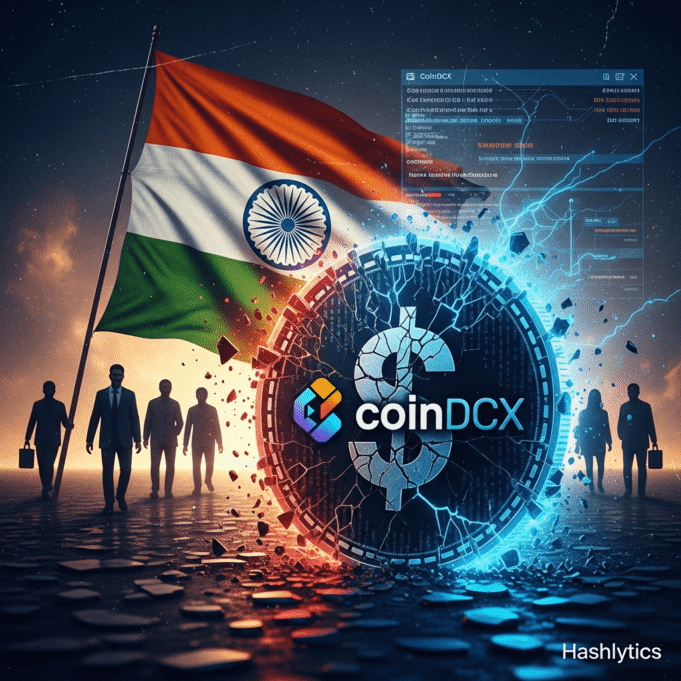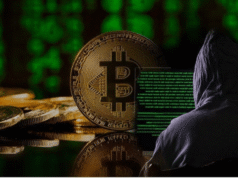-1.70%
+1.67%
-4.70%
-3.43%
-0.46%
-0.56%
The crypto landscape in India is facing a significant reckoning. Once celebrated as a pioneer, CoinDCX, the country’s first crypto unicorn, is currently grappling with a challenging combination of factors: a substantial $44 million hack, executive departures, and ongoing regulatory hurdles. These challenges collectively threaten to erode confidence in both the platform and the broader Indian crypto market.
These issues raise critical questions about the security, stability, and future trajectory of crypto exchanges within a nation that is simultaneously embracing and cautiously regulating digital assets.
Founded in 2018 by IIT Bombay graduates Sumit Gupta and Neeraj Khandelwal, CoinDCX emerged from a nascent Indian crypto scene. The initial vision was to provide a user-friendly gateway to digital assets for a rapidly digitizing India. This was a difficult task, given the regulatory uncertainty and outright hostility from traditional financial institutions at the time.
The exchange navigated a roller coaster of regulatory hurdles, including a ban by the Reserve Bank of India (RBI) that was eventually overturned by the Supreme Court. The bull market of 2021-22 proved to be CoinDCX’s golden age, with revenue soaring from ₹47 crore to ₹589 crore. The company achieved unicorn status after raising $90 million in Series C funding, seemingly invincible.
However, the tide began to turn. A series of exchange failures globally, coupled with investigations by the Enforcement Directorate into potential violations of anti-money-laundering and foreign-exchange rules, dampened investor enthusiasm. The collapse of FTX served as a stark reminder of the fragility of the crypto ecosystem.
CoinDCX has faced internal challenges, including a restructuring drive in 2023 that led to layoffs. More recently, a string of senior-level departures, including the CTO, head of legal, CHRO, and head of information security, have raised eyebrows and fueled speculation about the company’s stability.
The $44 Million Heist
Adding fuel to the fire, CoinDCX suffered a significant security breach in July. Attackers exploited compromised credentials to drain approximately $44 million from an internal liquidity wallet. While customer accounts were reportedly unaffected, the incident has undoubtedly damaged the exchange’s reputation and raised concerns about its security protocols. CoinDCX confirmed the incident and offered a 25% bounty for information leading to the recovery of the funds.
This incident highlights a fundamental vulnerability in centralized crypto exchanges. As custodians of massive pooled crypto reserves, they become prime targets for hackers. While blockchain technology itself is decentralized and secure, the exchanges that facilitate trading provide a single point of failure. WazirX, another major Indian exchange, suffered a similar catastrophic hack earlier in 2024, losing $235 million.
Beyond security woes, CoinDCX faces financial and regulatory pressures. Funding inflows have slowed significantly since 2022, and the company reportedly held acquisition talks with Coinbase, which has invested an undisclosed amount in the company. Founder Gupta maintains that the company is EBITDA positive, ensuring a healthy runway.
India’s current regulatory framework for cryptocurrencies, which treats them as virtual digital assets (VDAs), imposes a 30% tax on profits and a 1% tax deducted at source (TDS) on certain transactions. These regulations increase operational costs and complexity for exchanges like CoinDCX, making trading more expensive for users. Harshal Dasani, business head at INVasset PMS, notes that the taxation structure has “subdued high-frequency trading and pushed users toward longer holding periods.”
CoinDCX’s strategy of pursuing “deep vertical” integration, focusing on crypto-native products like Okto, a self-custody wallet, and BitOasis, an international expansion initiative, contrasts with competitors like CoinSwitch, which has diversified into equities. While Okto has seen some success, onboarding over 500,000 verified users and processing over $2 billion in transactions, it hasn’t achieved the explosive growth initially anticipated.
The company is now rolling out options trading to stay competitive, but faces competition from rivals like Delta Exchange, which has gained traction with crypto options trading and Indian rupee-settled futures. Raj Kapoor, founder of the India Blockchain Alliance, emphasizes that “leadership stability, especially in security-critical roles, is now treated as part of an exchange’s risk surface.”
CoinDCX finds itself at a critical juncture. The coming months will be pivotal in determining whether it can restore confidence, address its security vulnerabilities, and navigate the evolving regulatory landscape to secure its future in the competitive Indian crypto market. The road ahead is fraught with challenges, but the potential rewards remain significant for those who can successfully navigate the storm.




